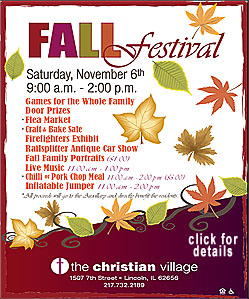| ||||||||||
| ||||||||||
Obama also spoke at an Oct. 7 rally for Democratic Gov. Martin O'Malley that drew 7,000 people to historically black Bowie State University. The school, about 20 miles east of Washington, is located in Prince George's County, Md., which, according to census data, is the nation's wealthiest majority black county
-- 65.6 percent black with a median annual household income of $71,696. The "got your back" posters stand at several major intersections in Prince George's, which also is home to Republican National Committee Chairman Michael Steele. "We've got your back, we've got your back," the crowd at Bowie State chanted when Obama took the stage with O'Malley and Lt. Gov. Anthony Brown, who is black. "What the other side is counting on is that this time around, you're going to stay home," Obama told the crowd. "They figure Obama's not on the ballot, you're not going to come out and vote. Well, Maryland, you have got to prove them wrong." Whether that message is getting through to enough black Democratic voters to make a difference is an open question. Andrew Robb, 47, of Upper Marlboro, Md., said he plans to vote and is not buying into the notion of significant Democratic losses. "It's my civic duty, and I'm voting Democrat," Robb said. "The Democrats are going to prevail. I think it's a lot of hype with the Republicans." But Joyce Walker, 55, of Bowie, also a Democrat, said she feels Democrats "might take a big hit" because many core voters are not fully engaged. "Most people, they're not enthusiastic about the governor's election. They're mostly enthusiastic about the president," said Walker, who does plan to vote on Nov. 2 when O'Malley faces Republican challenger Bob Ehrlich in the governor's race. The 20 House races where black turnout could determine the winner, according to Bositis' analysis, are in 14 states: Alabama, Arkansas, Delaware, Florida, Georgia, Louisiana, Maryland, Mississippi, North Carolina, Ohio, South Carolina, Tennessee, Texas and Virginia.
[Associated
Press;
Copyright 2010 The Associated Press. All rights reserved. This material may not be published, broadcast, rewritten or redistributed.
News | Sports | Business | Rural Review | Teaching & Learning | Home and Family | Tourism | Obituaries
Community |
Perspectives
|
Law & Courts |
Leisure Time
|
Spiritual Life |
Health & Fitness |
Teen Scene
Calendar
|
Letters to the Editor